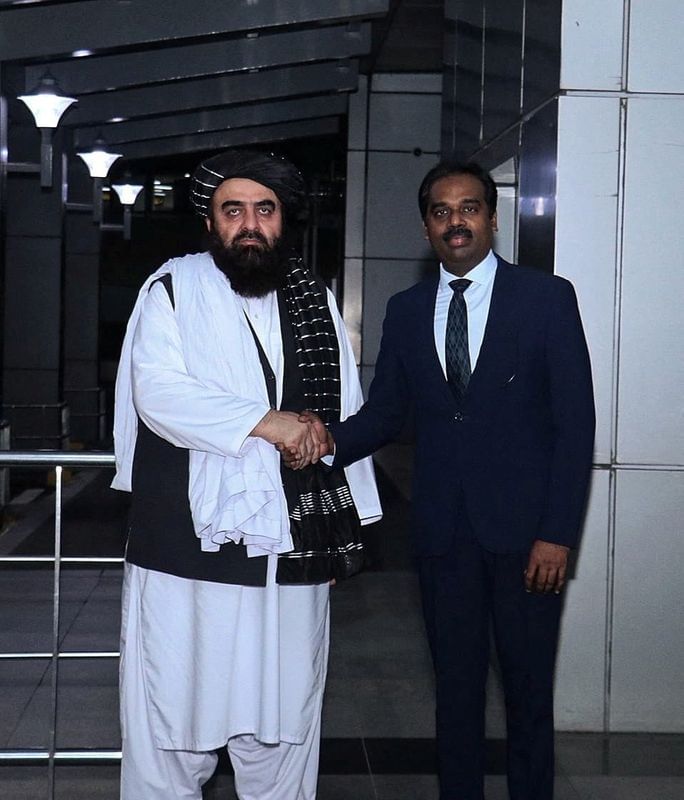By Shivam Patel
NEW DELHI (Reuters) -India on Friday upgraded ties with Afghanistan’s Taliban administration, giving a boost to the diplomatically isolated group, by announcing it would reopen its embassy in Kabul that was shut after the Taliban seized power in 2021.
India closed the embassy following the withdrawal of U.S.-led NATO forces from war-torn Afghanistan four years ago, though it launched a small mission in 2022 to facilitate trade, medical support and humanitarian aid.
About a dozen countries including China, Russia, Iran, Pakistan and Turkey have embassies operating in Kabul, although Russia is the only country to have formally recognised the Taliban administration, whose members are under U.N. sanctions including a travel ban and asset freeze.
INDIA’S MOVE INFLUENCED BY TENSIONS WITH PAKISTAN, CHINA
India’s announcement came during talks in New Delhi between Foreign Minister Subrahmanyam Jaishankar and his counterpart in the Taliban administration, Amir Khan Muttaqi, who is on a six-day visit after getting a temporary exemption on his travel ban.
It was the first such trip to India by a Taliban leader since 2021.
India and Afghanistan have historically had friendly ties, but New Delhi does not recognise the Taliban government.
India and the Taliban are now recalibrating their ties because of souring relations with their neighbour Pakistan as well as New Delhi’s concerns about major power rival China making inroads in Afghanistan, said Harsh Pant, foreign policy head at India’s Observer Research Foundation think-tank.
“Engagement does not mean endorsement. There are many things that India is uncomfortable about (under Taliban rule) – minority rights, gender rights, and the human rights landscape in Afghanistan,” he said.
“But there is a pragmatism inherent in India’s engagement with the Taliban … And this visit is, in some ways, continuing that tradition. It certainly can be considered the beginning of a new phase in India-Afghanistan relations under the Taliban government, which have been one-directional so far.”
Muttaqi’s visit aimed to develop ties with New Delhi and highlighted Taliban efforts to expand engagement with regional powers in a quest for economic relations and eventual diplomatic recognition, analysts said.
Western diplomats have said the Taliban administration’s path to recognition is being stalled by its curbs on women.
AFGHANISTAN WON’T BE SPRINGBOARD FOR TERRORISM, FOREIGN MINISTER SAYS
In his opening remarks on Friday, Muttaqi referred to ongoing counter-terrorism efforts and said the Taliban administration would not allow anyone to use Afghanistan’s territory for targeting other nations.
“We hope that Afghanistan and India, on an official level and in different areas, increase their engagement,” he said.
In his remarks about Friday’s deal, Jaishankar said India was “fully committed to the sovereignty, territorial integrity and independence of Afghanistan.
“Closer cooperation between us contributes to your national development, as well as regional stability and resilience,” he said, adding that India’s “technical mission” in Kabul was being upgraded to an embassy.
Jaishankar did not mention a timeline for the change.
(Reporting by Shivam Patel and Surbhi Misra; writing by Sakshi Dayal; editing by YP Rajesh and Mark Heinrich)
Disclaimer: This report is auto generated from the Reuters news service. ThePrint holds no responsibility for its content.






